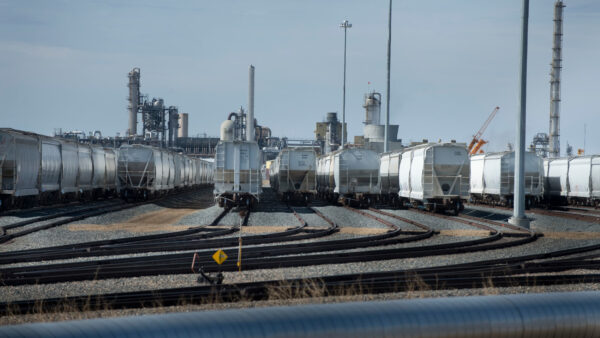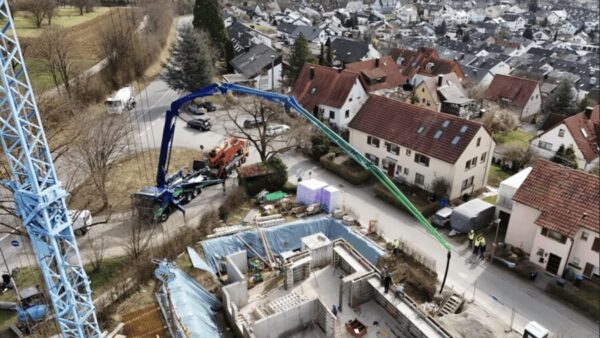Thanks to fraud and waste, the US lost up to $1.8bn of cash spent on reconstruction in Afghanistan between 2018 and 2019, a congressional watchdog has concluded.
The report of the Office of the Special Inspector General for Afghanistan Reconstruction (Sigar) found 323 instances of abuse, including programmes and projects that lacked clear goals, performance measures and quality data, as well as assets that were not used, abandoned, or posed safety hazards. [https://www.sigar.mil/pdf/special%20projects/SIGAR-21-05-SP.pdf]
Among the examples given was a community football stadium in Kunduz province, built as part of the State Department’s “Good Performers” initiative.Â
The report comments that it was not designed correctly, did not have a functioning irrigation system and suffered from poor workmanship and a lack of maintenance, including “falling ceiling tiles, broken drainage grates and unlevelled playing surfaces”.
It also suffered damage because the Afghan National Directorate of Security used it as a base for military operations during a period of fighting against Taliban forces between April and June 2017.Â
About 90% of the losses were caused by waste and 10% by fraud. Sigar investigators identified 30 instances of procurement and contract fraud with a total value of $300m. Most of this was accounted for by a single road project.
The report comments that $183m of this was associated with the Asian Development Bank’s (ADB’s) oversight of the completion of the Qeysar to Laman section of the Afghanistan Ring Road in the northwestern of the country.Â
It said: “The US provides monetary support to the Afghan government to help pay for ADB projects. The Ring Road is intended to be a continuous highway and major economic thoroughfare that connects Afghanistan’s four major cities-Kabul, Herat, Mazar-I Sharif and Kandahar.Â
“Sigar’s investigators found that contractors paid to finish this section of the road completed only 15% of the work and failed to pay subcontractors. The ADB terminated the contract for contractor poor performance.”
Of the waste identified, Sigar said almost all was the result of inadequate internal controls, for example a “lack of clear programme goals, performance measures, or quality data to support managerial decisions and ineffective monitoring or oversight of programme activities and reconstruction dollars”.
Altogether, Congress has voted $134bn in appropriations for Afghanistan between 2002 and 2019, considerably more than the amount spent on European reconstruction in the post-war Marshall Plan, adjusted for inflation. Of the $63bn audited by Sigar, some $19bn, or 30%, was lost to waste, fraud and corruption.Â
In a speech given at Georgetown University in 2015, John Sopko, the head of Sigar, commented: “If I am doing my job and being the good umpire that I was appointed to be, all I am seeing is a modus operandi that is woefully out of touch at best, and delusional at worst.”
Sigar was created by Congress in 2008 to providing independent oversight to funds made available for the reconstruction of Afghanistan. SIGAR maintains about 40 full-time staff in Afghanistan.
Image: The US has spent $134bn on Afghan reconstruction since 2002 (USAID)
Further reading:Â
Railways are the key to Afghanistan’s untold riches
Thanks to fraud and waste, the US lost up to $1.8bn of cash spent on reconstruction in Afghanistan between 2018 and 2019, a congressional watchdog has concluded.
The report of the Office of the Special Inspector General for Afghanistan Reconstruction (Sigar) found 323 instances of abuse, including programmes and projects that lacked clear goals, performance measures and quality data, as well as assets that were not used, abandoned, or posed safety hazards.
Among the examples given was a community football stadium in Kunduz province, built as part of the State Department’s “Good Performers” initiative.Â
The report comments that it was not designed correctly, did not have a functioning irrigation system and suffered from poor workmanship and a lack of maintenance, including “falling ceiling tiles, broken drainage grates and unlevelled playing surfaces”.
It also suffered damage because the Afghan National Directorate of Security used it as a base for military operations during a period of fighting against Taliban forces between April and June 2017.Â
About 90% of the losses were caused by waste and 10% by fraud. Sigar investigators identified 30 instances of procurement and contract fraud with a total value of $300m. Most of this was accounted for by a single road project.
The report comments that $183m of this was associated with the Asian Development Bank’s (ADB’s) oversight of the completion of the Qeysar to Laman section of the Afghanistan Ring Road in the northwestern of the country.Â
It said: “The US provides monetary support to the Afghan government to help pay for ADB projects. The Ring Road is intended to be a continuous highway and major economic thoroughfare that connects Afghanistan’s four major cities-Kabul, Herat, Mazar-I Sharif and Kandahar.Â
“Sigar’s investigators found that contractors paid to finish this section of the road completed only 15% of the work and failed to pay subcontractors. The ADB terminated the contract for contractor poor performance.
“Of the waste identified, Sigar said almost all was the result of inadequate internal controls, for example a “lack of clear programme goals, performance measures, or quality data to support managerial decisions and ineffective monitoring or oversight of programme activities and reconstruction dollars”.
Altogether, Congress has voted $134bn in appropriations for Afghanistan between 2002 and 2019, considerably more than the amount spent on European reconstruction in the post-war Marshall Plan, adjusted for inflation. Of the $63bn audited by Sigar, some $19bn, or 30%, was lost to waste, fraud and corruption.Â
In a speech given at Georgetown University in 2015, John Sopko, the head of Sigar, commented: “If I am doing my job and being the good umpire that I was appointed to be, all I am seeing is a modus operandi that is woefully out of touch at best, and delusional at worst.”
Sigar was created by Congress in 2008 to providing independent oversight to funds made available for the reconstruction of Afghanistan. SIGAR maintains about 40 full-time staff in Afghanistan.
Image: The US has spent $134bn on Afghan reconstruction since 2002 (USAID)
Further reading:Â










